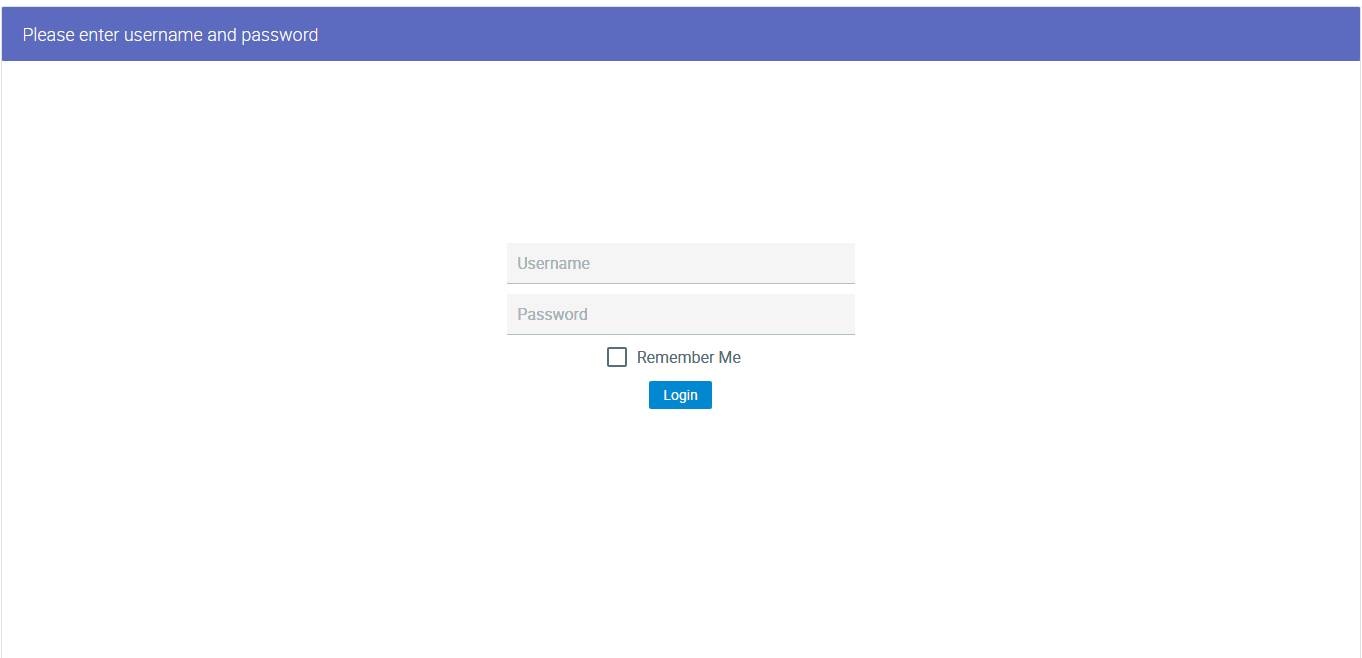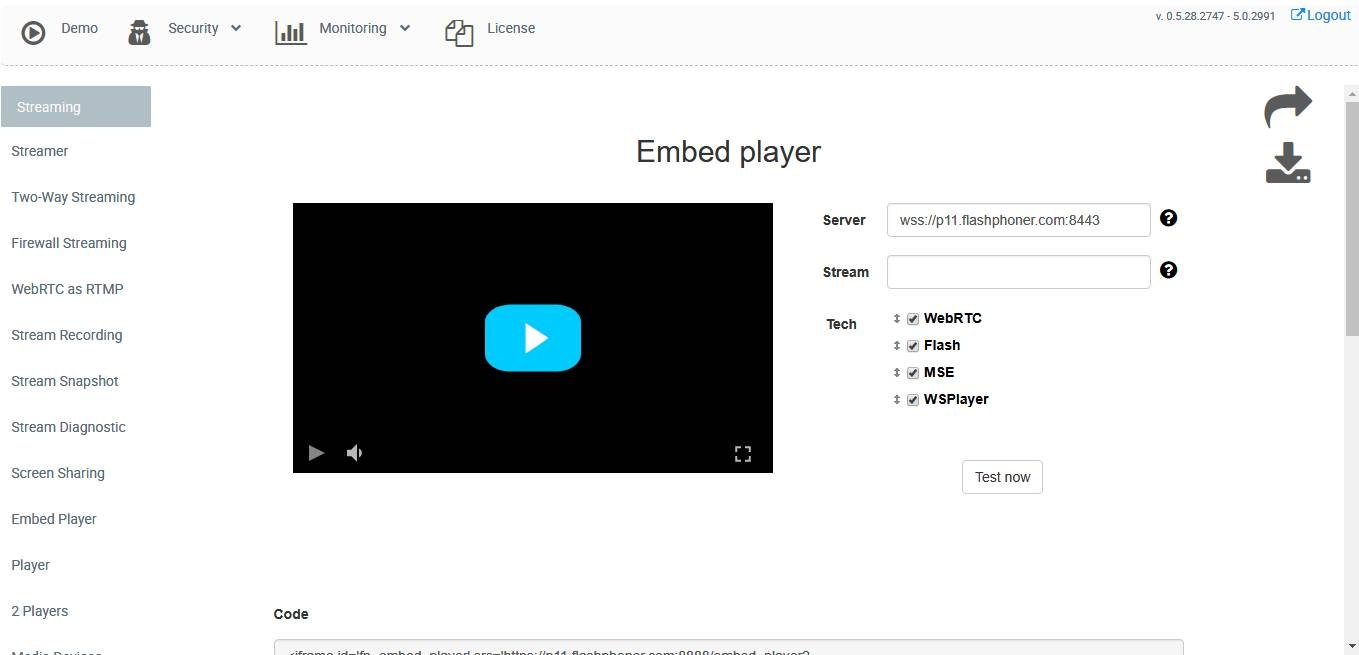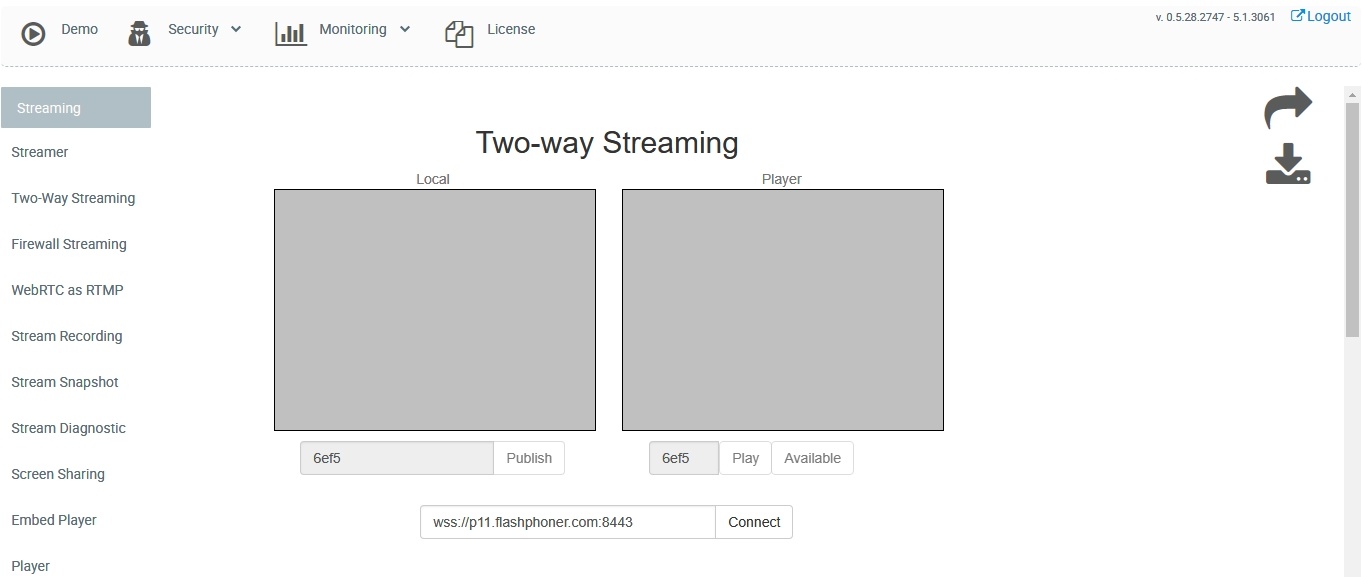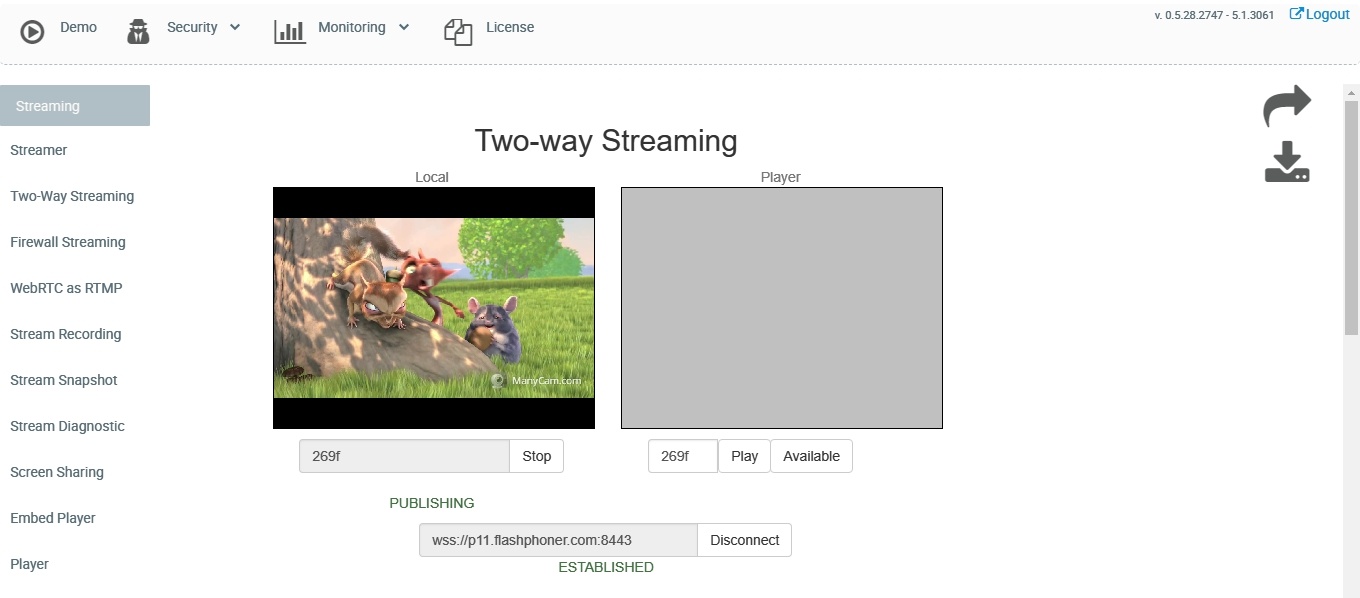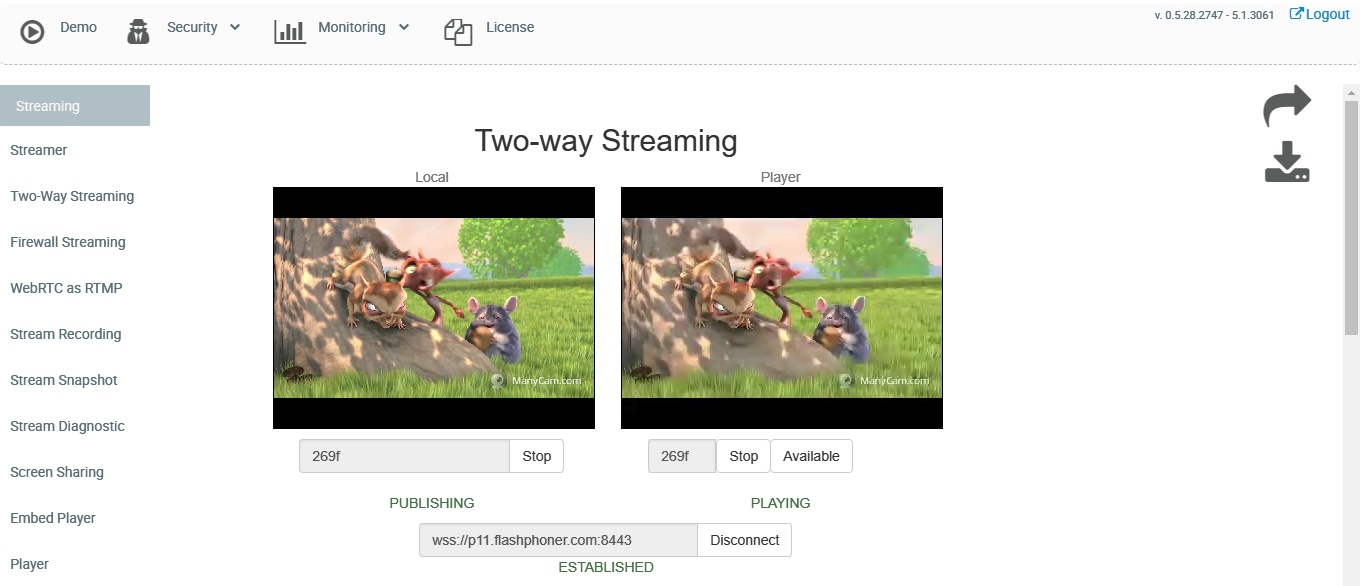1. Install CentOS 7 x86_64 to the server that matches the following minimum specifications:
- 2 gigabytes of RAM
- 10 gigabytes of disk space
- 1 CPU core
or use a VPS with similar characteristics.
2. Specify the name of the server in /etc/host and check its availability using the command
ping $HOSTNAME
3. Install wget
yum install wget
4. Install java
yum install java
5. Install epel-release and haveged
yum install epel-release yum install haveged haveged chkonfig on haveged
6. Download the installation package of last stable WebCallServer version from this page, for example:
wget https://flashphoner.com/downloads/builds/WCS/5.1/FlashphonerWebCallServer-5.1.xxxx.tar.gz
Where xxxx is build number of last stable WebCallServer version
7. Install WCS:
tar -xvzf FlashphonerWebCallServer-5.1.xxxx.tar.gz cd FlashphonerWebCallServer-5.1.xxxx ./install.sh
Where FlashphonerWebCallServer-5.1.xxxx.tar.gz is the downloaded on step 6 file name.
8. Activate a commercial or a 30-days trial license:
cd /usr/local/FlashphonerWebCallServer/bin ./activation.sh
9. Configure the firewall of the server and NAT (if available):
Type | Protocol | Port Range | Source |
|---|---|---|---|
Custom UDP Rule | UDP | 30000-33000 | 0.0.0.0/0 |
Custom TCP Rule | TCP | 8888 | 0.0.0.0/0 |
Custom TCP Rule | TCP | 8443 | 0.0.0.0/0 |
Custom TCP Rule | TCP | 30000-33000 | 0.0.0.0/0 |
Custom TCP Rule | TCP | 1935 | 0.0.0.0/0 |
10. Run WCS
service webcallserver start
11. Open the link https://yourserver:8888/ in a browser and confirm the security exception, set a password for the admin user.
12. Login to the WCS web interface:
By default, the Embed Player application opens
Select "Two-Way Streaming". The corresponding web application opens:
Click the Connect button, then the Publish button to verify stream publishing from a web camera.
Click Play to check if the stream is played from the server
If all steps were successful, WebCallServer is installed and is ready to work.
